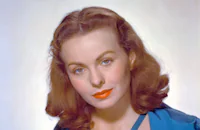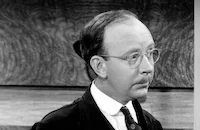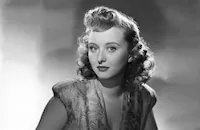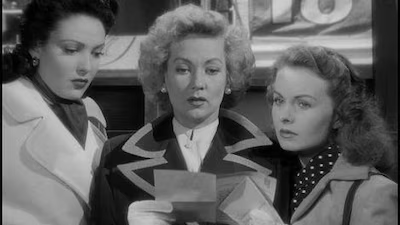In 1949, Joseph L. Mankiewicz wrote and directed A Letter to Three Wives, based on John Klempner’s 1945 novel, “A Letter for Five Wives.” The film earned Mankiewicz two Academy Awards for Best Director and Best Screenplay, and a nomination for Best Picture. Thirty-six years later, 20th Century-Fox Television decided to do a remake, also called A Letter to Three Wives, hiring Larry Elikann to direct and Sally Robinson to adapt Mankiewicz’s screenplay to make it more contemporary for a 1980s audience.
The film revolves around three women who take a charity day cruise for children. Once onboard the boat, they receive a letter from the glamorous Addie Ross, who tells them that she has run off with one of their husbands but doesn’t say which one. In flashback, each woman examines the history of her troubled marriage and wonders if it is her husband that Addie has stolen.
The new cast included television stars Loni Anderson (WKRP in Cincinnati), Stephanie Zimbalist (Remington Steele) and Michele Lee (Knot’s Landing) as the three wives of the title; Ben Gazzara, Michael Gross and Charles Frank as their husbands; and Doris Roberts as the wise-cracking maid. The producers thought that they could drum up a lot of publicity and help market the film by hiring one the original film’s stars, and so Ann Sothern was signed to play Loni Anderson’s mother. Sothern had first been considered for the part of the maid, but as she later recalled in an interview with The Idaho Statesman in 1987, she had to turn it down, telling the producers, “I’ll have to take the mother [role] ’cause I can’t carry a bloody tray.” Twelve years before, Sothern had been injured by a piece of scenery falling on her while she was appearing in a play in Jacksonville, Florida. The accident fractured a lumbar vertebra, damaging the nerves in her legs and leaving her with no feeling in her feet. Although she won a lawsuit against the theater and beat the doctors’ predictions that she would never walk again, she would need to use a cane for the rest of her life.
Sothern wasn’t the only actress to change roles. Loni Anderson had seen A Letter to Three Wives on television when she was 14 and had long wanted to play Lora Mae (originally portrayed by Linda Darnell), the working-class girl who marries a rich man. However, when Anderson was given the script, she found that she was to play another role. "I protested that I was wrong for that part and was told there was a mistake. I was down for the part I wanted.” She got it.
Reviews for A Letter to Three Wives were mixed. John J. O’Connor, in The New York Times, called it “less than inspired. […] The style and sharp edges of the original have been reduced to the all-too-familiar plodding of an ordinary television movie.” Michael E. Hill of The Washington Post wrote that it was “yet another example of television's relying heavily on another medium for its raw material, but if copy-cattism doesn't bother you, and you're not burdened with fixed impressions from the original, this version of ‘Three Wives’ makes for an entertaining evening.”
A Letter to Three Wives may not have been a hit, but it did lead to Ann Sothern being cast in the 1987 film, The Whales of August. Director Lindsay Anderson was so impressed with Sothern’s work that he immediately wanted her for his film. It would earn Sothern an Academy Award nomination for Best Actress in a Supporting Role.
SOURCES:
The AFI Catalog of Feature Films. https://catalog.afi.com/Catalog/moviedetails/25619
Hill, Michael E. “A ’40’s Throwback.” The Washington Post. December 15, 1985. https://www.washingtonpost.com/archive/lifestyle/tv/1985/12/15/a-40s-throwback/cf86a8f8-f7c8-4ee2-bdd5-611a0ab8ae30/
The Internet Movie Database. https://www.imdb.com/title/tt0089478/fullcredits?ref_=tt_ov_wr_sm
Margulies, Lee. “TV Review: ‘3 Wives’ Remake Accents Romance.” The Los Angeles Times. December 16, 1985. https://www.latimes.com/archives/la-xpm-1985-12-16-ca-911-story.html
O’Connor, John J. “TV Reviews; ‘Letter to Three Wives.’” The New York Times. December 16, 1985. https://www.nytimes.com/1985/12/16/arts/tv-reviews-letter-to-three-wives.html
Schultz, Margie. 1990. Ann Sothern: A Bio-Bibliography. Westport: Greenwood Press.




































